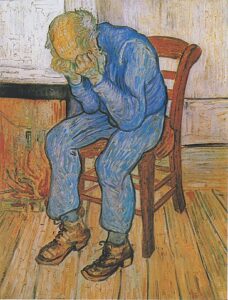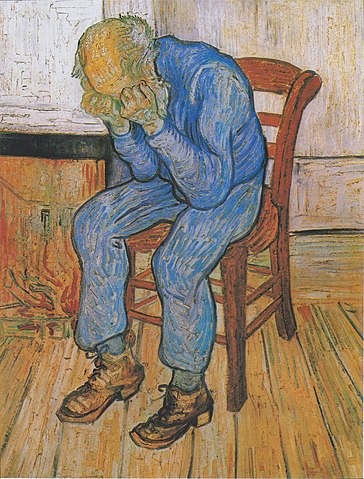
In “Serotonin or Not, Antidepressants Work” for Psychiatric Times, Drs. Ronald Pies and George Dawson wrote a critique of an article in Molecular Psychiatry by Moncrieff et al, “The serotonin theory of depression: a systematic umbrella review of the evidence.” They were puzzled with the article’s claim, that there was “no support for the hypothesis that depression is caused by lowered serotonin activity or concentrations.” They said it was like seeing an article in 2022, that said depression was probably not caused by excessive black bile.
Pies and Dawson dismissed the review as nothing more than “old wine in new bottles.” Then they listed 7 ways they thought the review and its conclusions were amiss. The role of serotonin in mood disorders was not settled science and there may be a role for it “in some types of depression, which is almost certainly a heterogeneous group of disorders.” They quoted Dr. Michael Bloomfield who said: “The problem with the review [by Moncrieff et al] is that…it has lumped together depression as if it is a single disorder, which from a biological perspective does not make any sense.”
Yet it does make sense when you do an umbrella review of studies where depression was assessed as the singular disorder of Major Sepressive Disorder, according to the DSM—which is published by the American Psychiatric Association.
Depression is a complex, heterogeneous disorder with biological, psychological, and sociocultural determinants and risk factors. Very few—if any—US psychopharmacologists and academic psychiatrists have ever endorsed a sweeping chemical imbalance theory of mood disorders. Historically, psychiatrists have never explained clinical depression solely in terms of reduced serotonin or any specific neurotransmitter. Many drugs in clinical medicine work through unknown or multiple mechanisms, as SSRIs do, and this does not affect their safety, efficacy, or approval for medical use. Results of placebo-controlled studies offer ample evidence that serotonergic antidepressants are safe and effective in the treatment of acute major depressive episodes. If serotonergic agents are not helpful, antidepressants from other classes (eg, noradrenergic/dopaminergic agents) may be considered.
Their final word was they hoped patients and clinicians would not be deterred from using antidepressants by the review, “or by the fact that SSRIs’ mechanism of action is complex and not completely understood.” So, the bottom line of their critique was whether or not we understand how serotonin influences depression, SSRIs work. In other words, the serotonin theory of depression may be wrong, but there must be a biochemical connection because antidepressants work. The effectiveness of SSRIs and other antidepressants is evidence of such a relationship. We just haven’t discovered what it is yet.
The Moncrieff et al article has received a significant amount of support as well as critique since it was published. The Rolling Stone wrote how the article “went viral,” but then essentially attempted to marginalize Moncrieff and dismiss her research.
In an email to Rolling Stone, Moncrieff said, “I see our research as linked with the way we understand and evaluate antidepressants, and it logically follows from my other work on the nature of drug action.” I think this statement by Moncrieff is the center of the dispute, but that was not where Rolling Stone went. It went off on a tangent, noting how the Church of Scientology organization, CCHR, frequently promoted her work. Also, that ‘far-right’ commentators like Matt Walsh and Tucker Carlson were promoting its findings. They suggested she was dabbling in conspiratorial thinking. If you conclude that antidepressants don’t work after reading her paper, then you got the wrong message.
Joseph Comaty, a Medical Psychologist, thought the paper didn’t undermine the efficacy of antidepressants. “But we just don’t know the biochemical theory of depression.” As we learn more about mental illness, things will change. According to Comaty: “if what we once believed is no longer tenable, then yeah, we’ll move along and come up with a new one.” That is just the process of scientific inquiry.
However, the mythical nature of the serotonin hypothesis of depression doesn’t seem to have been translated into the marketing and public discussion of antidepressants just yet. And why is it psychiatrists are referring to the Moncrieff et al study as old wine in new wine skins, saying it is akin to declaring depression is not caused by an excess of black bile? If they’ve known the chemical imbalance theory of depression was an error for several years, why did they not correct that false impression in the public media that is now discussing the Moncrieff et al review?
In a blog article, Moncrieff responded to some of the inaccuracies and distortions in the Rolling Stone article. She said apparently their finding was so obvious that it was met with yawns by the psychiatric community. “Yet the public were kept in the dark about the lack of evidence for a chemical imbalance for three decades in what an Australian psychiatrist recently called a ‘scourge on our profession’. And the public is very interested.” Their original paper is in the top 500 most shared scientific papers—of the 21 million that have ever been tracked—and their article in The Conversation (the one Pies and Dawson referred to) had over a million hits by August 3rd.
She noted the attempt to discredit her by association to the Scientologists and the ‘right-wing media.’ The article said she promoted the belief that SSRIs were linked to aggressive behavior, which was said to be a fringe view used by right wing media to argue against gun control in the US. She did comment on research published in the British Medical Journal (BMJ) that found a link between antidepressants and aggressive behavior, as well as suicide, in young people. Her comments were published in an invited editorial in the BMJ.
The journalist does present my response to these issues, but bringing them up seems to suggest that because of this we should never have publicised or maybe even done our research. This amounts to the suggestion that millions of people should be denied information about the drugs they put in their body every day because the message might be taken up by the ‘wrong’ people.
The ’right’ people seem to be the ones who have known for thirty years that the chemical imbalance theory was disproved. They’ve known it was an urban myth, yet did not speak up and correct the wrong impression given to the public. Now that the public is paying attention, they say the news about serotonin is old hat. It seems they want you to ignore the conclusions of the Moncrieff et al study and just return to business as usual with antidepressants.
For more information on the Moncrieff et al study its implications, see “The Death of the Chemical Imbalance Theory?” and “The Myth of the Serotonin Theory of Depression.”





